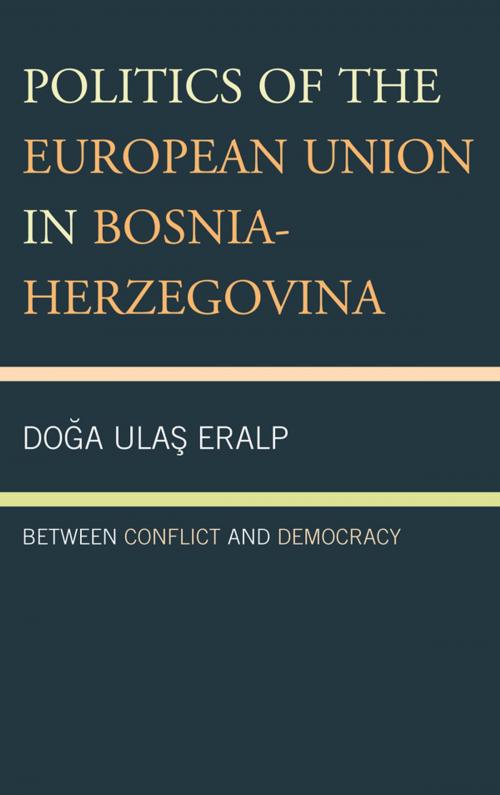Politics of the European Union in Bosnia-Herzegovina
Between Conflict and Democracy
Nonfiction, Social & Cultural Studies, Political Science, International, Foreign Legal Systems, International Relations| Author: | Doga Ulas Eralp | ISBN: | 9780739149478 |
| Publisher: | Lexington Books | Publication: | April 5, 2012 |
| Imprint: | Lexington Books | Language: | English |
| Author: | Doga Ulas Eralp |
| ISBN: | 9780739149478 |
| Publisher: | Lexington Books |
| Publication: | April 5, 2012 |
| Imprint: | Lexington Books |
| Language: | English |
Politics of the European Union in Bosnia-Herzegovina: Between Conflict and Democracy, by Doga Ulas Eralp, evaluates the European Union's ability to transform the escalating political tensions at a period where the postconflict balance of the Dayton Peace Agreement is turning increasingly unsustainable. Eralp questions whether reforms integral to the EU membership process and existing European crisis management mechanisms can liberate Bosnian politics from the help of ethno-nationalism and plant the seeds for a successful liberal democracy.
Eralp's text captures the tools and history of the EU's accession strategy for Bosnia-Herzegovina and the challenges of the Dayton system as two interrelated narratives, both exploring the realities of Bosnian politics and analyzing the overall quality of Bosnian democracy. Bosnia's consociational system, the role of the international community, and the intervention of the European Union are all put under the spotlight as the institutional and political factors behind Bosnia's stagnation. The text concludes with a discussion of factors that impact the effectiveness of the European Union as an important transformative actor in Bosnia.
Politics of the European Union in Bosnia-Herzegovina: Between Conflict and Democracy, by Doga Ulas Eralp, evaluates the European Union's ability to transform the escalating political tensions at a period where the postconflict balance of the Dayton Peace Agreement is turning increasingly unsustainable. Eralp questions whether reforms integral to the EU membership process and existing European crisis management mechanisms can liberate Bosnian politics from the help of ethno-nationalism and plant the seeds for a successful liberal democracy.
Eralp's text captures the tools and history of the EU's accession strategy for Bosnia-Herzegovina and the challenges of the Dayton system as two interrelated narratives, both exploring the realities of Bosnian politics and analyzing the overall quality of Bosnian democracy. Bosnia's consociational system, the role of the international community, and the intervention of the European Union are all put under the spotlight as the institutional and political factors behind Bosnia's stagnation. The text concludes with a discussion of factors that impact the effectiveness of the European Union as an important transformative actor in Bosnia.















